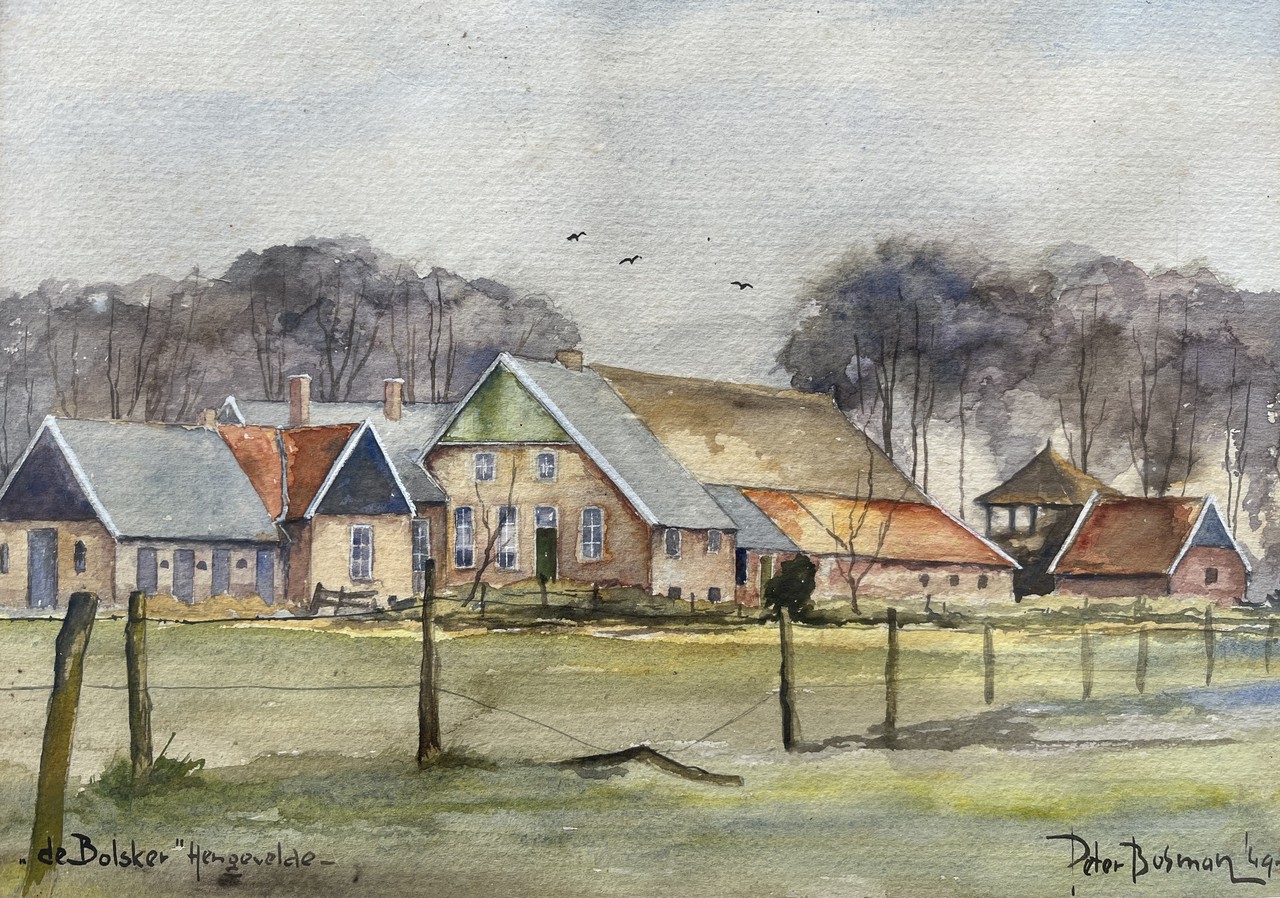Arnold ten Heggeler and his sister Marie recounted in 2014:
“Suddenly there was a loud banging on the front door. Inside, we were terrified. No one ever came to our front door—especially not at that time of day. The door flew open, and that Hungarian was the first to come in. He acted very important, with his clicking heels and rifle. He had betrayed us. He was such a nasty little man. I still often see him entering in my dreams,” said Marie.
They recalled how, following the Hungarian, a German SS officer entered, followed by dozens of soldiers. The farm had been surrounded, and the two Polish soldiers and the people in hiding had already been dragged out of the barn. The Polish soldiers were treated with extreme brutality—beaten and kicked.
Arnold said:
“We all had to lie flat on the floor. We were terrified. Jan, Henk, and I were taken to the barn. With the reins of the horse and with ropes, we were tied up and taken away. We had to walk to Goor, and that was especially difficult for Jan. He had a brace on his left leg due to polio. I still don’t understand how he managed to make it.”
At the ULO (a school building) on Schoolstraat in Goor, the young men were interrogated. Everhardus (another brother or family member) had a revolver on him, which he quickly dumped into the toilet, afraid the Germans would punish him for it.
“The next day we were taken to Almelo, where we spent a night in a cell. The following day we were interrogated again. We had to stand all day against the wall with a machine gun aimed at us from behind.”
In Almelo, Jan—as the eldest of the three brothers—and two members of the resistance, Harrie Woertman and Evert Bos, were taken away from the other prisoners. About sixteen men were packed into one cell.
Meanwhile, the family's farm was completely looted. Chickens were slaughtered and eaten. The livestock and harvested grain were taken away, along with all the valuables in the house—clothing, silver, gold jewelry. The only belongings they were allowed to keep were the clothes they were wearing at the time of the raid.
Marie said:
“The worst part was that we could see through the windows that the girls from Millingen, who had been evacuated and housed with us, were cozying up to the Germans and wearing our clothes.”
Two days later came the message that Jan had been executed, together with Woertman and Bos, the two members of the resistance from Goor. Jan Brummelhuis, a cousin of the family, had identified the men. The two Polish soldiers had been executed immediately.
